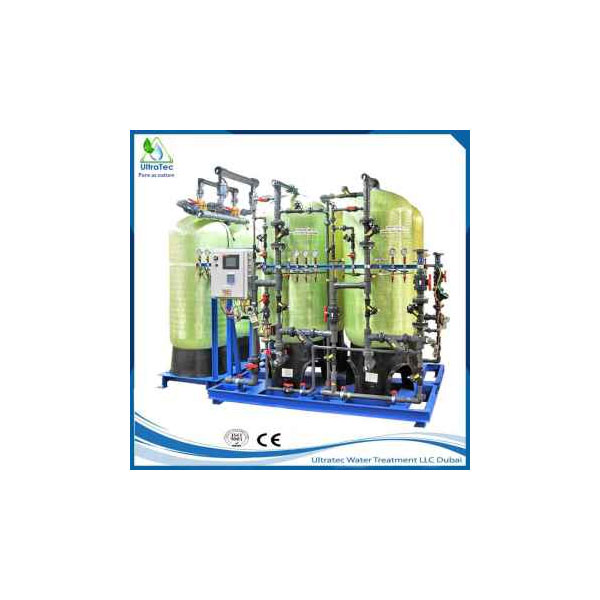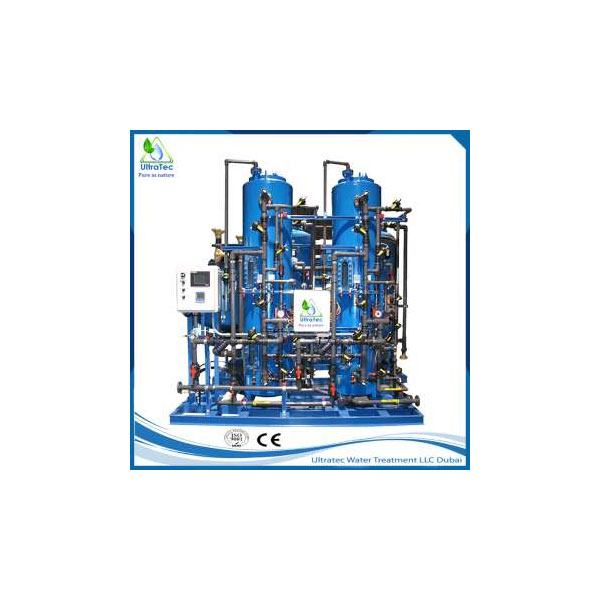WATER DE-IONIZATION
Water De-Ionization
Water de-ionization is a revolutionary solution that removes impurities from water and produces clean and pure water that is safe to use. This article will explore water de-ionization, how it works, and its benefits.
Water is essential to survive, but not all water is safe to drink or use. Water can contain impurities such as minerals, salts, and other contaminants, affecting its taste, odor, and quality. We need to remove these impurities to ensure that our water is safe and clean. They are where water de-ionization comes in.
What is Water De-Ionization?
Water de-ionization is a process that removes impurities from water by using a resin bed. The resin bed contains ion exchange resins that attract and remove ions and other impurities from the water. This process removes all the minerals and salts from the water, resulting in clean water.
How Does Water De-Ionization Work?
Water de-ionization works by using a resin bed to remove impurities from water. The resin bed contains ion exchange resins that attract and remove ions and other impurities from the water. This process is called ion exchange.
When water passes through the resin bed, the ions and impurities are attracted to the ion exchange resins. The ion exchange resins then exchange their ions with the ions in the water, removing the impurities and leaving pure, clean water behind.
Benefits of Water De-Ionization:
Water de-ionization offers several benefits, making it an ideal clean and sterile solution. Here are some of the benefits of water de-ionization:
- Removes all impurities: Water de-ionization removes all contaminants from water, including minerals and salts. These can ensure that the water is clean and pure.
- Improves water quality: Water de-ionization enhances water quality by removing impurities affecting its taste, odor, and appearance.
- Reduces maintenance costs: Water de-ionization lowers maintenance costs by preventing scale buildup in pipes, appliances, and other equipment.
- Environmentally friendly: Water de-ionization is an environmentally friendly solution that does not use chemicals or produce harmful waste.

De-Ionization
Water Treatment UAE provides comprehensive de-ionization services to safeguard the quality of your drinking water. Our systems effectively eliminate harmful particles and pollutants in the water at home and in your workplace.
With over 15 years of experience, we are committed to delivering cutting-edge solutions to our clients. Deionized water, or DI water, DIW, or deionized water, refers to water with most of its mineral ions, such as sodium, calcium, iron, copper, chloride, and sulfate, removed.
It is the preferred type of water in various manufacturing settings and factories. DI water is extensively used in industries such as medicine, food processing, chemicals, semiconductors, cosmetics manufacturing, and industrial cooling applications.

INDUSTRIAL SEPARATE BED DEIONIZER
Deionization refers to removing or reducing both positive ions (cations) and negative ions (anions) from water. This process can produce high-purity water with a conductivity of 50 to 1 micro Siemens/cm or better, even from typical water sources.
The deionization process involves two resins: cation resin and anion resin. The cation resin is converted to the hydrogen form and exchanges positive ions for hydrogen. In contrast, the anion resin is converted to hydroxyl and exchanges negative ions for hydroxyl.
Resins used in deionization applications are specifically designed for this purpose. They can be regenerated using 6.4 pounds of 100% hydrochloric acid per cubic foot of cation resin and 8.0 pounds of 100% sodium hydroxide per cubic foot of anion resin.
Lakeside resins are known for their high chemical and physical stability, lower pressure drop, and greater resistance to bead breakage. The selection of strong or weak base resins depends on the customer’s water quality requirements.
In contrast, type 1 or 2 anion resins are selected based on the silica residuals required for the specific application. Standard systems use pressure-compensating educators to draw chemicals during the deionization process.
Conclusion:
Water de-ionization is a revolutionary solution for clean and pure water. It removes all impurities from water, improves water quality, reduces maintenance costs, and is environmentally friendly. To ensure that your water is safe and clean, consider using water de-ionization.